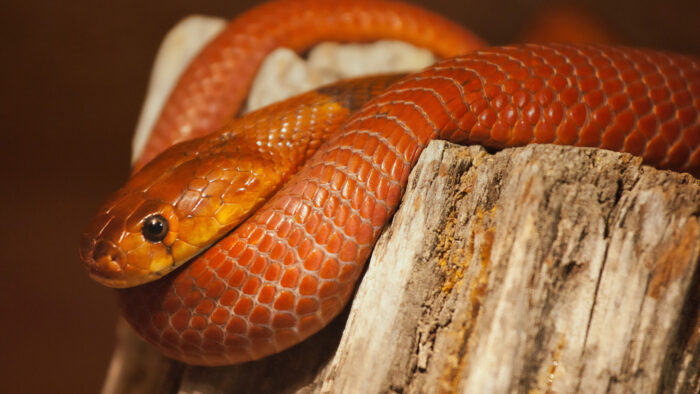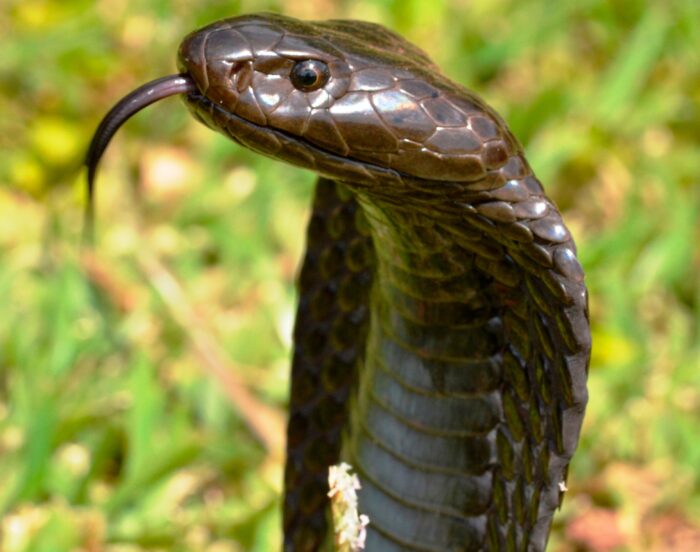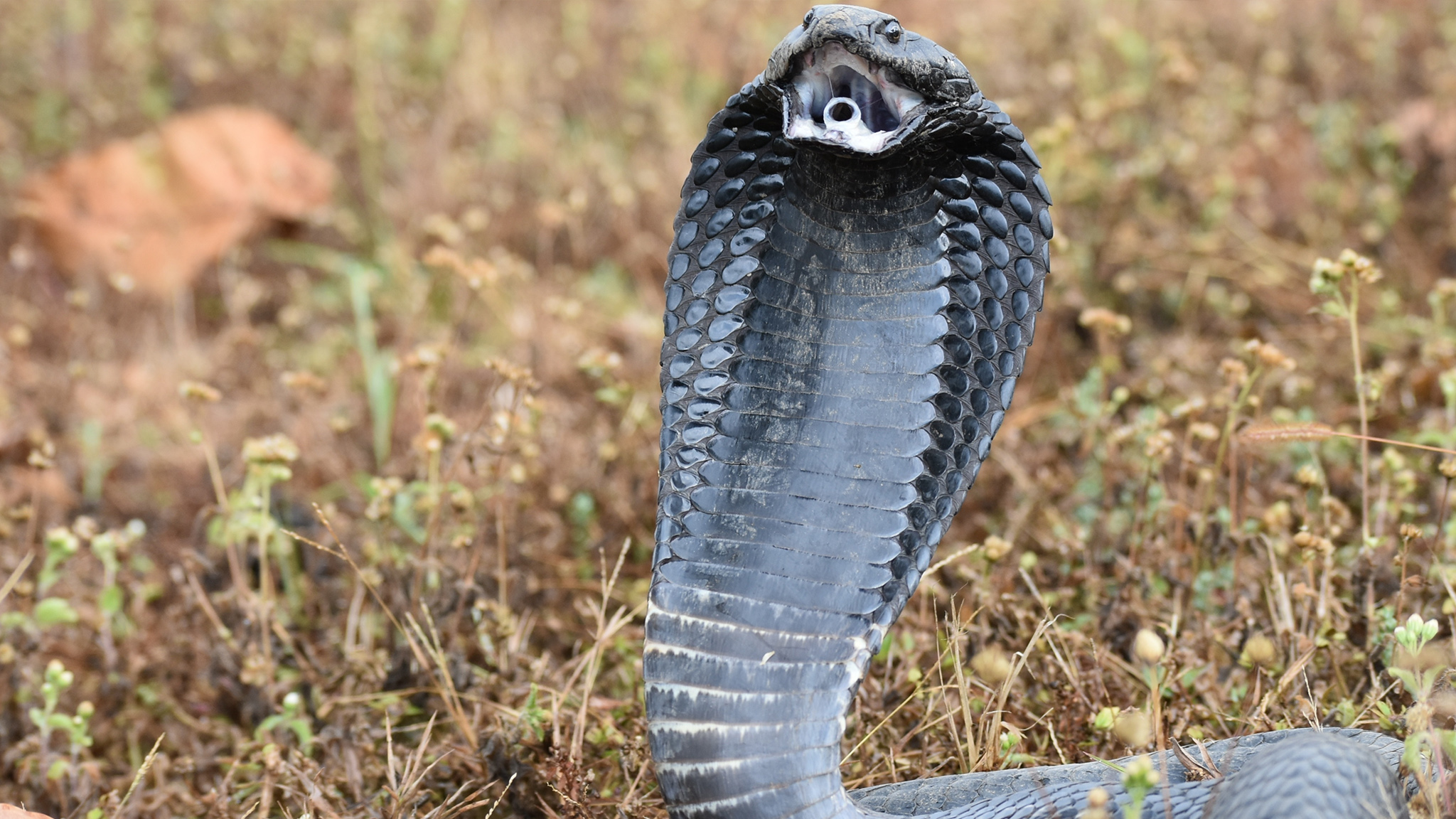The Liverpool School of Tropical Medicine announced that a drug called varespladib could be repurposed to treat spitting cobra bites.
Standard antivenom treatments are ineffective at handling the severe tissue damage from this highly potent venom. Often bitten areas must be excised and limbs amputated. Spitting cobra venom is cytoxic, meaning destructive to tissue cells, while other cobra venoms are neurotoxic (harmful to nerves) or cardiotoxic (harmful to the muscles and electrical impulses which govern the heart).
But in a study published in Proceedings of the National Academy of Sciences, the researchers believe they’ve found a way forward.

A red spitting cobra. Photo: Shutterstock
“Blocking just one of the main toxin families in spitting cobra venom will likely prevent the debilitating tissue damage seen in thousands of snakebite patients each year,” Nicholas Casewell, one of the paper’s authors, told Sci.News.
A dynamic duo
To develop a treatment, the Liverpool team first investigated the chemical makeup of spitting cobra venom. According to the paper, the scientists used “cellular and mouse experiments” to identify the toxins responsible for the massive tissue damage, eventually discovering two substances at work.
Both toxins were necessary to damage tissue to such a drastic extent after a bite. Inhibiting one of them might just be the key.

A black-necked spitting cobra. Photo: Shutterstock
For this, they turned to varespladib, a drug originally developed to treat severe inflammatory diseases. Scientists have been researching varespladib as a treatment for snakebites since 2016, and it seemed a good fit to attack the chemical structure of spitting cobra venom.
The team found that injecting varespladib into the areas around bite wounds showed significantly reduced catastrophic tissue damage, up to an hour after the toxins began their malicious work on the flesh. The treatment also reduced venom-induced muscle toxicity, another nasty side effect of spitting cobra bites.
Dr. Keirah Bartlett, one of the paper’s co-authors, said the findings were extremely promising
“Not only does this offer up a new mode of treatment where previously nothing effective existed, but because varespladib has already gone through testing in human clinical trials, including for snakebite, it could be available for use in real-world patients very soon.”
Good news for African residents and travelers alike.






